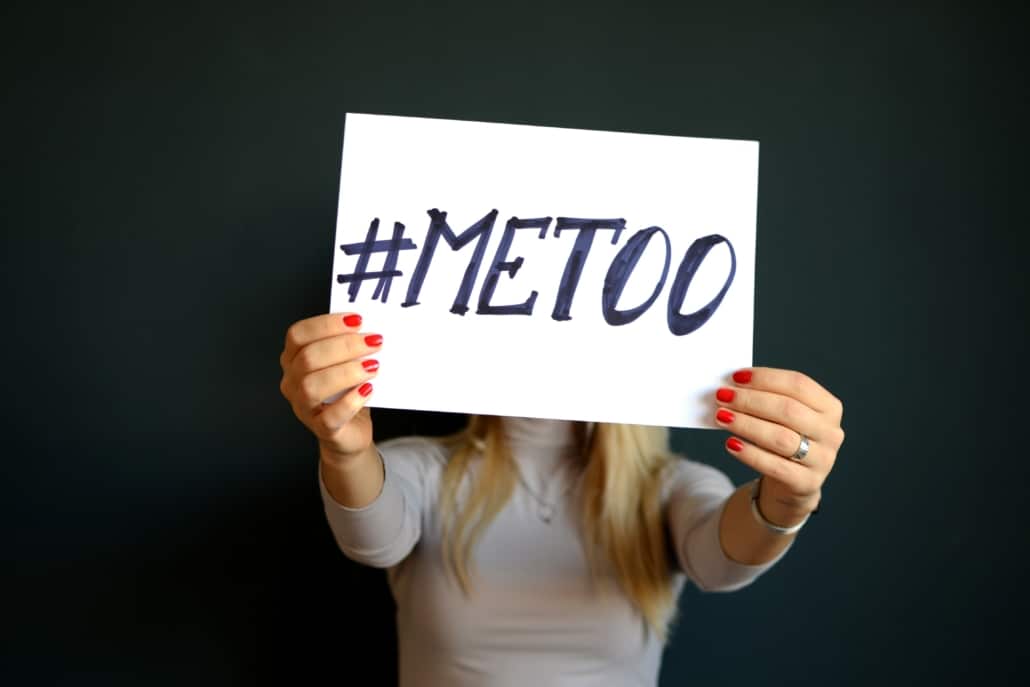Does Power Promote Sexual Harassment?

In the wake of #MeToo, many women who valued their relationships with male coworkers and friends, and know the importance of cross-sex networking for their careers, were deeply dismayed to hear Vice President Mike Pence endorse the “Billy Graham Rule”—Pence said he would not meet alone with a woman who is not his wife. While I, too, fear for the state of relationships between women and men, and for women’s careers if this is the unintended consequence of #MeToo, I hope the results from a new study I produced with my colleagues shed some reassuring light on what sexual harassment is really about: the power motive.
It would be easy, looking at the high-profile cases that inspired and sustained the #MeToo movement, to come away thinking of sexual harassment as a simple abuse of power that calls for better ethical standards among powerholders. This would agree with prior findings that show how power promotes the objectification of other people (but having a strong moral identity can rein in power’s negative effects). But our research offers a different perspective, notably on the comments from Andrew Cuomo, New York’s former governor. You might recall him saying, in reference to accusations of sexual harassment, “At work, sometimes I think I am being playful and make jokes that I think are funny.” Given the role of the power motive in producing sexual harassment, we are skeptical about him having benign intentions, but his view is consistent with our findings, and underscores the role of perceiving the self as a playful and charming flirt in producing sexual harassment.
We expected people who sexually harass others to think of themselves as harmless flirts.
In our new paper, I along with my co-authors Laura Kray of UC Berkeley and Michael Rosenblum of NYU, directly examined how holding power relates to asking sexually harassing questions, and we found that the story isn’t as straightforward as some might expect. Sexual harassment isn’t a direct result of having power. It happens when men want to generate a powerful image—it is power insecurity, not holding power, that promotes this type of unethical behavior. What we refer to as a social sexual identity predicted sexual harassment proclivities above and beyond other possible predictors, such as sexism, narcissism, and certain styles of flirting.
We were able to piece this together by conducting a study where participants completed a “leadership assessment,” and were assigned (in reality, at random) to either a high- or low-power role. Afterward, participants received some information about another participant with whom they expected to complete a “get acquainted” task. Men were always paired with women and vice versa, so that pairs were cross-gender. As part of the get-acquainted task, participants could ask the other participant questions. Some of these questions were standard interview questions such as, “Have you ever had a workplace conflict?”, “Are you better at math or writing?”, and “Are you good at meeting deadlines?”
Each of these questions had a counterpart involving sexual innuendo, and we pre-tested the sexual questions to establish that people interpreted them to be high in dominance and low in warmth—that is, not the kind of question that someone would ask in an effort to connect or have fun with another person. We also established that people viewed these questions as offensive. Together, the results establish the questions as a measure of sexual harassment.
One of our key questions was: How many of the sexual (versus task-related) questions would men and women ask when they held power, versus when they lacked it?
When men lacked power, they asked more sexually harassing questions than when they possessed it, suggesting that it isn’t holding high levels of power per se that is problematic. Women’s questions did not vary by level of power. Also, a gender difference emerged only when people lacked power: Men asked more sexually harassing questions than women did when they lacked power, but when men and women possessed power, the genders acted identically.
What’s going on? Holding power seems to have activated a sense of duty to protect other people, prioritize their needs, and help them, consistent with recent research examining power in collaborative settings. In contrast, lacking power activated a stronger desire for power. Men (but not women) responded to their own desire for power by asking sexually harassing questions. But it wasn’t effective. When asked if they actually felt more powerful, people who asked more sexual questions reported no stronger a sense of power than those who stuck to professional norms.
How do people perceive a man who asks these questions of his female boss? Participants read about a coffee meeting between a male subordinate and his female boss. After imagining the situation and reviewing some background information on each party, participants read text that varied only one element of their conversation over coffee: Half read that the subordinate asked his female boss work-related questions, like who she sees as a star performer and finds it easy to work with; and the other half read that the subordinate asked his female boss sexual questions, like who she finds attractive and whether she had ever dated a coworker. After measuring perceptions of the parties’ relative power, we found that people perceived the male subordinate as more masculine and relatively higher in power when he asked the sexual questions.
Subscribe to the Ethical Systems newsletter
In another study, which examined the effect of people’s motives on their behavior, we got the same results. Using a procedure similar to the previous study, we told over 600 people, on average 34 years old, that they would be getting acquainted with a coworker of the other gender. Initially, we assigned people to one of four motive conditions—power, agentic, affiliative, and a control.
Participants in the power condition were told they were motivated to demonstrate they were more important in the workplace than their coworker. In the agentic condition, their motive was to be effective at pursuing their goals. In the affiliative condition, their motive was to establish a positive relationship with their coworker. And in the control, they received no instructions about motive. They reviewed some basic background information about the other coworker, and selected questions from the set described earlier.
Psychologically, the power motive condition was identical to the agentic motive condition by producing equivalent intentions to pursue self-interest, achievement, image, and power. We refer to these conditions together as the self-enhancement motive condition. Similarly, the affiliative and control conditions produced equivalent intentions to benefit the coworker and establish a positive relationship. We refer to these two conditions together as a self-transcendence motive condition.
Again, men selected more sexually harassing questions for the woman when they aimed to self-enhance versus self-transcend. Women’s behavior did not vary by motive condition. Also, a gender difference emerged only when self-enhancement motives were strong: Men and women behaved identically when they intended to build a relationship with the other person.
These results point to the power of intentions. As for many other unethical behaviors, for sexual harassment, intentions matter. Some intentions promote the risk of engaging in this behavior, and others reduce the risk. Our results suggest that when the desire to self-enhance is strong, people need to be the most deliberate about their behavior, because this is when they are at risk of acting out of accord with ethical standards.
Another key question for us was: What are people thinking when they sexually harass others?
We first examined how moral identity affected sexual harassment, considering its connection to so many other types of ethical behavior. In one study, people who reported that moral traits (e.g., caring, fair, compassionate) were central to who they were intended to engage in fewer sexual behaviors in the workplace. In a second study that experimentally strengthened moral identity, no causal effect emerged for it. This left us thinking there was more to understand about how people conceive of themselves when they engage in this type of behavior.
To predict how people rationalize unethical behavior, we think it’s often helpful to imagine the positive spin likely to be placed on the behavior in question. Any behavior can have a positive or negative spin, and it can require a high degree of self-honesty and deliberate thinking to know which spin is more accurate. We expected people who sexually harass others to think of themselves as harmless flirts, and in line with this idea, we measured agreement with statements like, “I am a big flirt,” “I know how to turn on the charm,” “I am playful with members of the opposite sex,” and “I have sex appeal.” Gender differences emerged for this scale, and not in the direction that people expected. While our respondents expected women to agree with it more than men, men endorsed the statements more than women did. Motives also affected it. When desire to self-enhance was strong, people endorsed the statements more than when desire to self-transcend was strong.
When people perceive themselves in this way, it might signal a blind spot. These thoughts could signal that it’s time to take a closer look at one’s intentions and behavior. This way of perceiving the self could serve as an early red flag for those who wish to hold themselves to high ethical standards. It isn’t men’s desire to connect with women that leads them to act differently than women would in an identical situation. It’s when the desire for power hijacks the most intimate domain of human behavior, sexuality, that men should be concerned.
Jessica Kennedy is an organizational psychologist at Vanderbilt University, where she studies effective conflict resolution, diversity issues, and ethical issues at work.



